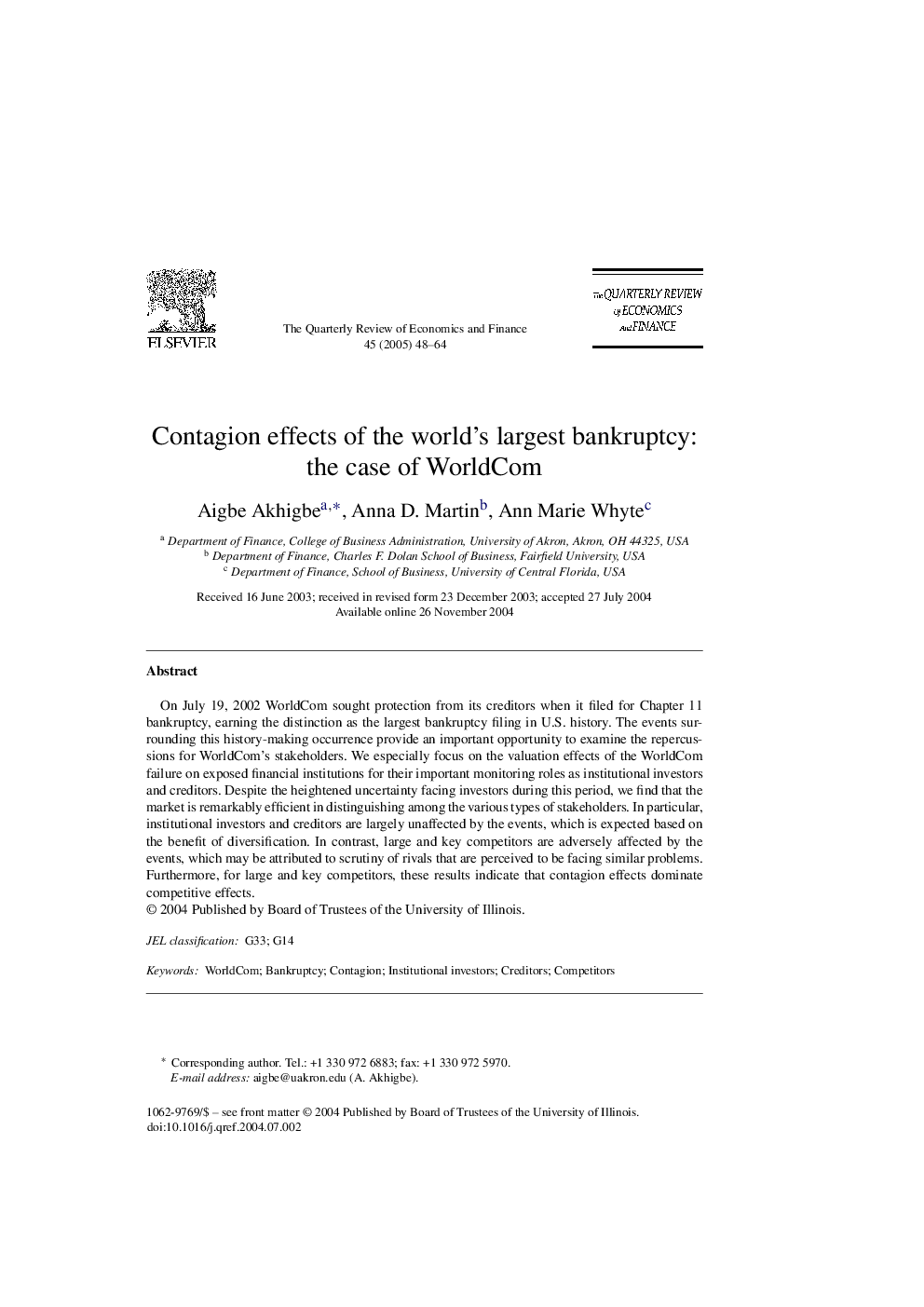| Article ID | Journal | Published Year | Pages | File Type |
|---|---|---|---|---|
| 9731501 | The Quarterly Review of Economics and Finance | 2005 | 17 Pages |
Abstract
On July 19, 2002 WorldCom sought protection from its creditors when it filed for Chapter 11 bankruptcy, earning the distinction as the largest bankruptcy filing in U.S. history. The events surrounding this history-making occurrence provide an important opportunity to examine the repercussions for WorldCom's stakeholders. We especially focus on the valuation effects of the WorldCom failure on exposed financial institutions for their important monitoring roles as institutional investors and creditors. Despite the heightened uncertainty facing investors during this period, we find that the market is remarkably efficient in distinguishing among the various types of stakeholders. In particular, institutional investors and creditors are largely unaffected by the events, which is expected based on the benefit of diversification. In contrast, large and key competitors are adversely affected by the events, which may be attributed to scrutiny of rivals that are perceived to be facing similar problems. Furthermore, for large and key competitors, these results indicate that contagion effects dominate competitive effects.
Related Topics
Social Sciences and Humanities
Economics, Econometrics and Finance
Economics and Econometrics
Authors
Aigbe Akhigbe, Anna D. Martin, Ann Marie Whyte,
